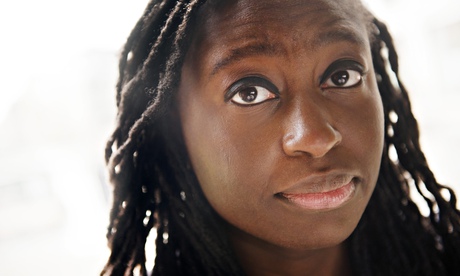
Born in Nigeria in 1984, Helen Oyeyemi, 29, moved to London with her family aged four. She signed a publishing deal while still at school and her first novel, The Icarus Girl, a ghost story about an eight-year-old girl torn between her British and Nigerian identity, received rave reviews. She followed it with Cuban-themed The Opposite House, while studying social and political sciences at Cambridge, and White is for Witching, about teenage twins, which won a 2010 Somerset Maugham award. Her next book, Mr Fox, featuring an American writer with a penchant for murdering his heroines, was a riff on the Bluebeard story. Named a Granta best young novelist in 2013, she published her fifth novel, Boy, Snow, Bird, last week (Picador, £12.99). After sojourns in New York, Paris, Budapest and Berlin, she now lives in Prague.
Boy, Snow, Bird is set in 1950s America, in both the white and black community. And yet it has the quality of a fairytale…
For me Boy, Snow, Bird is is very much a wicked stepmother story. Every wicked stepmother story is to do with the way women disappoint each other, and encourage each other, across generations. A lot of terrible things can come out of that disappointment. I also wanted to explore the feminine gaze, and how women handle beauty without it being to do with men, per se.The women all want approval from each other, and are trying to read each other. I also wanted to look at the aesthetics of beauty – who gets to be deemed the fairest of them all. And in Snow White that is very explicitly connected with whiteness. It had to be an American story because "passing" is an American phenomenon.
Did you do much research into black families that managed to pass as white?
I didn't research that much, but I do remember being absolutely fascinated by Nella Larsen's 1929 novel, Passing. She makes it a very tense drama – will she be revealed? – and your stomach just coils up reading it.
Your work has been compared to Edgar Allen Poe and Emily Dickinson (The Opposite House comes from one of her poems). Who are your contemporary favourites?
Contemporary writers, eh? It feels difficult to find what I need nowadays. But every now and again, I get blindsided by a writer. Mr Cogito by the Polish poet Zbigniew Herbert is one of those books you return to every year. I love everything Ali Smith does. I recently read Hawthorn and Child by Keith Ridgway and that was brilliant. Lydia Davis, Aimee Bender, Jesse Ball. And Kelly Link – her story The Specialist's Hat is just off-the-chain terrifying. But I do tend to feel more connected to dead writers, perhaps because they have finished their work. I recently discovered Argentine writer Silvina Ocampo's short story collection, Leopoldina's Dream, there's a lot of time travel in that. I'm very interested in mysticism, I think it's why I stay in Catholicism.
All your books seem to be about migration and the need to belong.
No, no! This is a thing people always talk to me about, but with The Icarus Girl, I wanted to write a doppelganger story. White is for Witching was my haunted-house/vampire story. But people get a bit excited if there's a black person and say, "Oh this is about that thing" when actually it's about expanding the genre of haunted house stories. I love character and voice and my favourite books have been the ones in which I've become completely absorbed. I'm thinking of Barbara Comyns's novel The Skin Chairs (1962). I like the entire drama of whether the protagonist is going to be OK inside herself. To make you care so deeply is a really important thing. I love befriending a voice in a book and just going wherever it wants to go. The flaw is where the character is.
Do you prefer to write about women?
I sometimes get asked: "How come the men in your stories don't have such strong characters?" And I'm like: "I don't care." I just want to find out about all the different lives a woman can live. But my feminism has never been against men. It's not erasure; it's just they're not the focus. In real life, they're quite nice.
You suffered from clinical depression in your teens. Is it important that your characters break the taboo of having an inner "hysteric"?
Yes. It's difficult to put states of mind into boxes sometimes, because there's a general alienation that you can experience, that isn't quite insanity but borders on it. And that alienationis a kind of a political alienation. It's a result of a lot of different factors external to you, that you can't quite perceive and yet they have a total hold on you.
Can you remember the 17-year-old who wrote The Icarus Girl?
I can, and I think she would be very surprised at me. I did not expect to survive school. I did not expect to be almost 30. I thought I was going to die; school just seemed endless. Now I feel so very interested in life and continuing it. Whereas then I firmly believed death was better than life. It's almost as if there's some kind of time travel where you can comfort yourself in the future – fly from Prague to south-east London and say: '"It's going to be ok."
Are books your greatest expenditure?
That and posh tea. I've found a place in Prague that sells Mariage Freres. The price is ridiculous but I need it!

